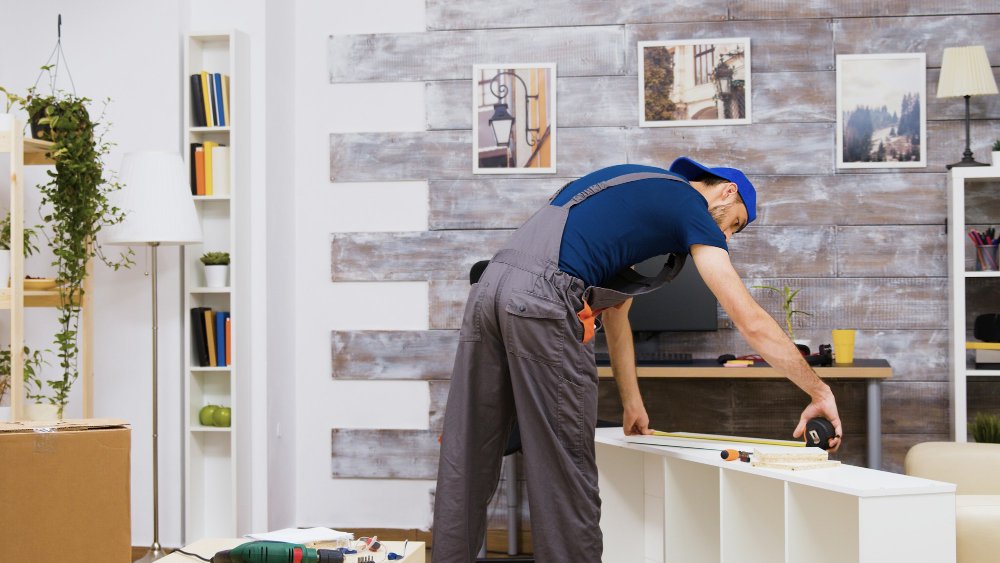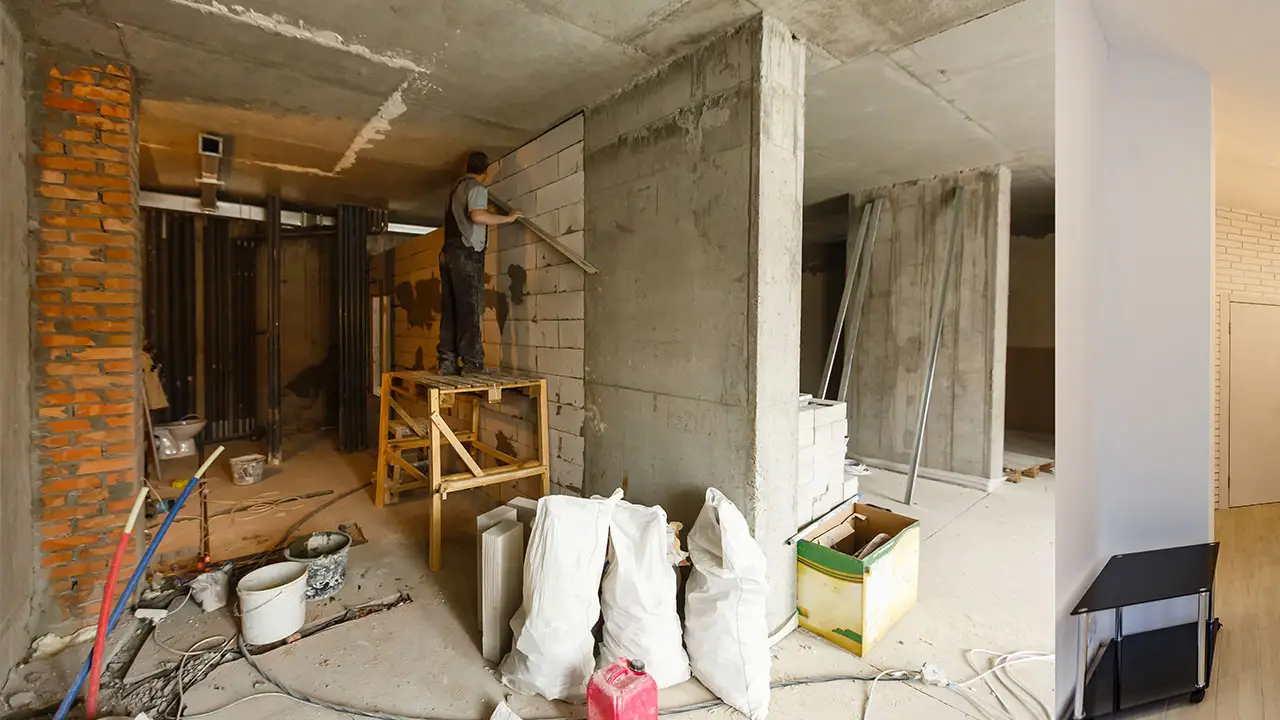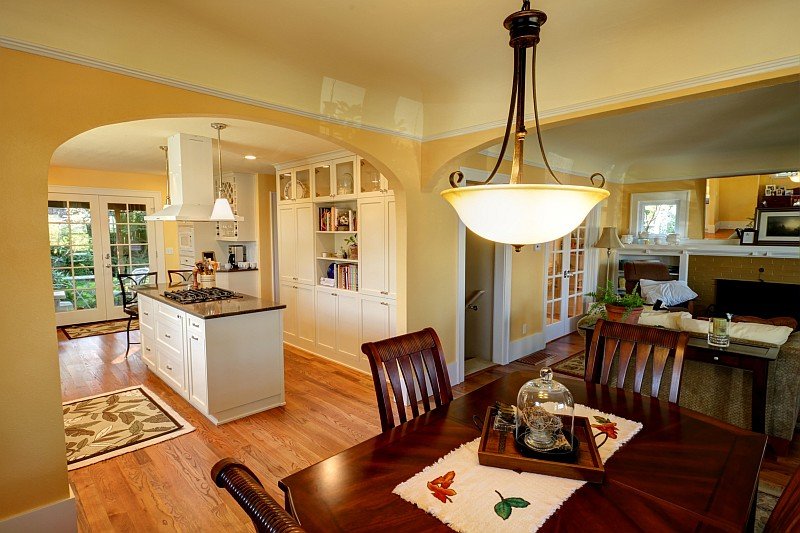Home remodeling is an exciting yet challenging endeavor, especially in a fast-growing region like Dallas-Fort Worth (DFW). Whether you’re planning to update your kitchen, renovate a bathroom, or add square footage to your living space, the process can quickly spiral out of control if you’re not careful. This article will explore the most common home remodeling mistakes made by homeowners in DFW and offer practical advice on how to avoid them. By learning from these pitfalls, you can ensure a smoother and more successful renovation project.
1. Failing to Set a Realistic Budget
One of the biggest mistakes homeowners in DFW make is underestimating the cost of a remodeling project. It’s tempting to start with a budget that only includes the basics, but without accounting for unexpected expenses, your renovation can easily exceed your financial expectations.
How to Avoid This Mistake:
- Get multiple estimates from contractors to gauge a realistic cost range.
- Plan for a 10-15% contingency to cover unexpected expenses like structural problems, material delays, or design changes.
- Include soft costs such as permits, inspections, and temporary housing if your remodel displaces you for any period.
2. Skipping Professional Help
Many DIY enthusiasts in DFW think they can tackle large projects without professional assistance. While this can save you money upfront, it may lead to costly errors down the road that require more expensive repairs.
How to Avoid This Mistake:
- Hire licensed contractors who are experienced in the specific type of renovation you’re planning.
- If you’re doing part of the project yourself, consult a professional for the more complex elements like electrical work, plumbing, or structural changes.
- Use an architect or designer for large-scale projects, particularly if the remodel involves knocking down walls or changing the layout.

3. Not Checking Local Regulations and Permits
In the DFW area, each city has specific zoning laws, building codes, and permit requirements. Ignoring these legalities can lead to hefty fines, project delays, and even forced demolition of unapproved work.
How to Avoid This Mistake:
- Research local building codes and determine which permits are required for your remodel.
- Check your HOA rules if you live in a community that imposes restrictions on home renovations.
- Work with a contractor familiar with DFW regulations, as they can often handle permit applications and inspections for you.
4. Choosing the Wrong Contractor
Your choice of contractor can make or break your remodeling project. Hiring the wrong person could lead to poor workmanship, missed deadlines, or even legal disputes.
How to Avoid This Mistake:
- Vet your contractors by checking their licenses, insurance, and past project reviews.
- Get recommendations from neighbors or friends in the DFW area who have recently completed similar renovations.
- Sign a detailed contract outlining the scope of work, timeline, and payment schedule to protect yourself in case issues arise.
5. Over-Improving for the Neighborhood
It’s easy to get carried away with high-end finishes and luxury upgrades, but over-improving your home can make it difficult to recoup your investment, especially if the home’s value far exceeds the neighborhood average.
How to Avoid This Mistake:
- Research the market in your neighborhood to see the typical home values and features.
- Aim for a balanced approach, combining updates that add value with those that reflect your personal style.
- Consult a local real estate expert to ensure your improvements align with the market, particularly if you plan to sell within the next few years.
6. Underestimating the Timeline
A common pitfall in home remodeling is expecting the project to be completed quickly. In DFW, where the demand for skilled contractors is high, labor shortages and material delays can push timelines further than expected.
How to Avoid This Mistake:
- Discuss realistic timelines with your contractor before the project begins.
- Account for potential delays, including weather conditions (which can be unpredictable in North Texas), labor shortages, and material backorders.
- Be flexible with your schedule and avoid planning the remodel during times of year when you may need your home for special events or family gatherings.
7. Sacrificing Functionality for Aesthetics
While a stylish home is important, functionality should never be sacrificed in the process. Many homeowners get caught up in picking beautiful materials or trendy designs, only to find that their new space doesn’t meet their practical needs.
How to Avoid This Mistake:
- Focus on practicality when planning your remodel, particularly in high-use areas like kitchens and bathrooms.
- Think long-term—consider how the space will serve your needs five or ten years from now.
- Consult with designers or space planners to ensure that your layout maximizes both style and functionality.

8. Not Planning for Future Needs
Failing to consider future needs is a common issue, especially in homes where families are growing or aging. Many people overlook the need for accessibility, storage, or adaptable spaces that can change over time.
How to Avoid This Mistake:
- Plan for flexibility in your design to accommodate life changes like growing families, aging in place, or future resale value.
- Consider universal design principles, which make spaces accessible for all ages and abilities.
- Build extra storage wherever possible, as this is a common regret for homeowners who run out of space after their remodel is complete.
9. Poor Lighting Choices
Lighting can make or break a space, and inadequate lighting is one of the most commonly overlooked elements in home remodeling. Poor lighting can leave your home feeling dark, cramped, or visually unappealing.
How to Avoid This Mistake:
- Layer your lighting with a mix of ambient, task, and accent lighting to create a balanced, well-lit space.
- Consider natural light sources such as windows and skylights to enhance your home’s brightness.
- Work with a lighting designer if possible, especially for larger projects or spaces where lighting plays a critical role in the overall ambiance.
10. Ignoring Energy Efficiency
With rising energy costs in DFW, homeowners should prioritize energy-efficient upgrades during their remodel. Ignoring this aspect can lead to higher utility bills and missed opportunities for cost savings.
How to Avoid This Mistake:
- Incorporate energy-efficient materials like double-pane windows, LED lighting, and Energy Star-rated appliances.
- Improve insulation and seal gaps around doors and windows to reduce heating and cooling costs.
- Consult an energy auditor who can offer tailored recommendations for maximizing efficiency in your remodel.
11. Inadequate Space Planning
Space planning is crucial in any remodel. Failing to think through how you’ll use the space can result in cramped rooms, awkward layouts, or areas that don’t serve their intended purpose.
How to Avoid This Mistake:
- Use space planning software or work with a designer to visualize your layout before starting the project.
- Ensure flow and accessibility by placing high-traffic areas in central locations and avoiding bottlenecks.
- Consider multifunctional spaces, especially in smaller homes, to get the most out of your square footage.
12. Overlooking Curb Appeal
Many homeowners focus solely on the interior during a remodel, but the exterior of your home is just as important, particularly in a competitive real estate market like DFW.
How to Avoid This Mistake:
- Update the landscaping and make sure your lawn is well-maintained throughout the remodel.
- Invest in exterior upgrades such as new siding, fresh paint, or a modern front door to boost curb appeal.
- Don’t forget outdoor lighting, which can highlight your home’s features and improve security.
13. Neglecting to Communicate With Contractors
Poor communication is a leading cause of frustration during remodeling projects. Misunderstandings can lead to delays, budget overruns, and unmet expectations.
How to Avoid This Mistake:
- Establish clear lines of communication with your contractor and maintain regular updates throughout the project.
- Use project management tools or apps to stay organized and keep track of milestones, deadlines, and budgets.
- Ask questions and don’t hesitate to clarify anything you’re unsure about to ensure you’re on the same page.

14. Not Considering Resale Value
While personal preferences are important, making design choices that could hurt your home’s resale value is a common mistake. Quirky or overly customized renovations may appeal to you but not to potential buyers.
How to Avoid This Mistake:
- Balance personal taste with broader appeal by choosing neutral colors, timeless materials, and classic design elements.
- Consult a real estate agent to get a sense of which upgrades add the most value in the DFW market.
- Avoid overly niche renovations, like turning an extra bedroom into a highly specific hobby room, unless you’re sure you won’t sell anytime soon.
15. Ignoring Post-Remodel Maintenance
Once the dust settles, many homeowners fail to consider the ongoing maintenance required for their newly renovated space. Skipping this important step can lead to rapid wear and tear, especially in high-use areas.
How to Avoid This Mistake:
- Ask your contractor for maintenance tips specific to the materials and finishes used in your remodel.
- Create a maintenance schedule for routine tasks like cleaning filters, resealing grout, or touching up paint.
- Stay proactive in addressing any small issues before they become larger, more expensive problems.
FAQs
Q1: What’s the best time of year to start a remodel in DFW?
Spring and fall are ideal seasons for remodeling in DFW due to milder weather, which can help avoid project delays caused by extreme heat or rain.
Q2: How can I find a reliable contractor in DFW?
Check reviews, ask for recommendations from friends, and always verify licenses and insurance before hiring.
Q3: Do I need a permit for a kitchen remodel in DFW?
Yes, most major renovations, including kitchen remodels, require permits. Always check with local authorities.
Q4: How long does a typical bathroom remodel take in DFW?
On average, a bathroom remodel can take 3 to 6 weeks, depending on the complexity of the project.
Q5: How can I make my home more energy-efficient during a remodel?
Focus on upgrading insulation, installing energy-efficient windows, and using appliances with Energy Star ratings.
Q6: What’s the most common reason for remodeling delays?
The most frequent causes of delays include material shortages, poor weather, and changes to the project scope.
Read More Blogs: https://empireadda.com/



